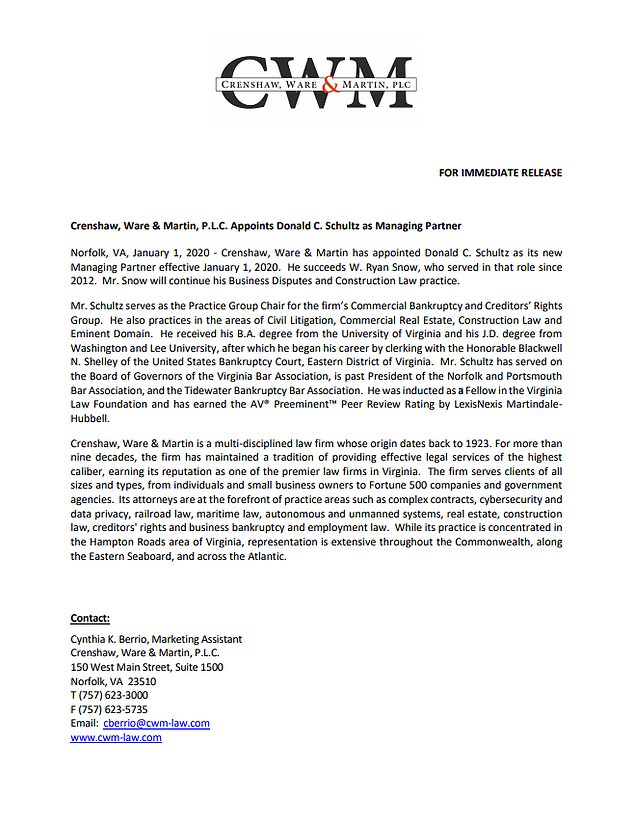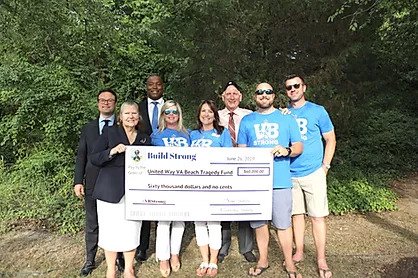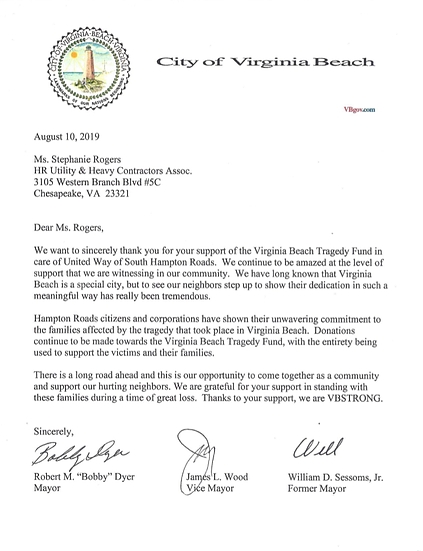SCC Gas Shortage Alert
To Virginia excavation stakeholders and pipeline operators;
A recent cyber-attack on Colonial Pipeline causing its shutdown has left many areas across the state with limited or no gas supply. The shortage of fuel has already begun to effect the locating and excavating communities; locators responding to tickets, and contractors having fuel to run equipment. As of 1800 hours on 5/12/21 Colonial Pipeline restarted their system. However, it will take a few days for fuel supplies to “normalize”.
During this time, we would ask that everyone exercise due care around utilities and be patient with getting locates. We encourage locators to use the following response codes where needed on non-emergency tickets until fuel becomes more readily available:
- Code 60 – Alternate Marking Schedule and/or
- Code 97 – Extraordinary Circumstances
We would also ask that the excavating community, if possible, delay starting any new Non-emergency projects which would further complicate the situation.
In addition, please keep in mind that once fuel becomes available it is going to take some time for the locate community to catch up. Again, we ask that everyone be patient and exercise due care during this unusual situation. If you have any further questions, please feel free to contact us.
Carl Dale Scott Marshall
Damage Prevention Program Manager Pipeline Safety Program Manager
Division of Utility and Railroad Safety Division of Utility and Railroad Safety
SCC URS Safety Alert
To: PIPELINE OPERATORS and EXCAVATION STAKEHOLDERS
SUBJECT: URS SAFETY ALERT: Underground Utility Separation- Gas pipelines vs. Electrical power infrastructure
BACKGROUND:
In recent weeks Staff of the Commission’s Division of Utility and Railroad Safety’s Damage Prevention and Pipeline Safety sections have discovered multiple occurrences of electrical power and gas distribution facilities being less than 12” of radial separation as required from each other and absent of any approved shielding devices.
In one instance of improper separation, multiple arc faults occurred from the electrical power facility resting within six inches of a medium density polyethylene (“MDPE”) plastic commercial service line. Eventually, the multiple arc faults resulted in the electrical service burning a hole into the live MDPE service line creating a gas leak and evacuations of a significant commercial area.
HISTORICAL RFERENCE:
About 12:25 a.m. on July 7, 1998, a natural gas explosion and fire destroyed a newly constructed residence in the South Riding community in Loudoun County, Virginia.
This incident was investigated by multiple safety partner agencies including the VA SCC and the National Transportation Safety Board (“NTSB”.) Below is an excerpt from the NTSB’s report PB2001-916501 PAR-0101 (available here.):
“A family consisting of a husband and wife and their two children were spending their first night in their new home at the time of the explosion. As a result of the accident, the wife was killed, the husband was seriously injured, and the two children received minor injuries. Five other homes and two vehicles were damaged.
The National Transportation Safety Board determines that the probable cause of the accident in South Riding, Virginia, was the corrosion and subsequent overheating and arcing at a splice in one of the conductors of the triplex electrical service line, which, because of inadequate separation [emphasis added] between the electrical conductors and the gas service line, led to the failure of the gas service line and the subsequent uncontrolled release of natural gas that accumulated in the basement and was subsequently ignited. Precipitating the electrical service line failure was damage done to the electrical service line during installation of the gas service line and/or during subsequent excavation of the electrical line.”
In response to this incident, the Commission adopted separation standards in Case PUE-2000-0662 and furnished a report to the Governor and General Assembly on December 28, 1999.
ACTIONS:
It is extremely concerning the rising number of electrical separation issues with gas pipelines being discovered by Staff in the field. Staff is therefore requesting that pipeline operators and excavation stakeholders:
- Take the information in this URS Safety Alert and disseminate within their organizations, including all contractors, and perform additional training and familiarization with all separation standards, but particularly those involving electrical and gas facilities (12” radial separation.)
- Operators and excavation stakeholders are encouraged to report the discovery of improper separation immediately to the utilities in question regarding the use of contact information on their 811 ticket.
- Staff also requests to report those separation issue to the Division’s Damage Prevention Section via its DPA-1 form found here.
RESOURCES:
Additional information regarding Utility Line Separation requirements is contained in Virginia’s Professional Excavator Manual is available here .
Information regarding Utility Line Separation can be found here.
Should you wish to discuss the matter further please feel free to contact our Damage Prevention and Pipeline Safety sections. Very respectfully your partners in safety,
Utility Damage Prevention Pipeline Safety
Carl Dale Scott Marshall
Damage Prevention Program Manager Pipeline Safety Program Manager
Carle.Dale@scc.virginia.gov Scott.Marshall@scc.virginia.gov
Congratulations to Ashley Stephens of Gaston Brothers Utilities!
We are so proud to recognize Ashley Stephens, a two-time HRUHCA Scholarship recipient who has received her Bachelor of Science Degree in Business Administration: Human Resource Management from Liberty University on April 3, 2020. Congratulations! Best wishes in your continued career at Gaston Brothers Utilities!
COVID-19 Presents Construction Industry with Challenging New Legal Issues

Jack Rephan

COVID-19 PRESENTS CONSTRUCTION INDUSTRY WITH CHALENGING NEW LEGAL ISSUES
Jack Rephan[1]
Businesses who are engaged in construction, related activities, whether on public or private projects, including owners, contractors, subcontractors, and material suppliers, as well as sureties under payment and performance bonds, can expect that there will be new and challenging legal problems resulting from the impact of the Coronavirus. While certain types of projects have been deemed to be essential, others have not, resulting in job shutdowns and layoffs of employees. And even on essential projects, new rules regarding social distancing and other requirements to protect the health of workers may result in the loss of efficiency with an increase in labor costs and a delay in job progress. A loss of key people due to the disease can result in an increase of problems for the project. And, of course, a decrease in new projects, or a delayed start of new projects, can have a major financial on those businesses who need new business to survive.
The purpose of this short article is not, however, to deal, in general, with the economic impact of COVID-19 on the construction industry, but to highlight some of the legal issues that may arise as parties to a contract for the performance of construction seek to survive the impact of COV-I19 on their ability to meet their contact obligations, or to pursue their contractual remedies against those who don’t. And, although this article principally deals with legal issues concerning contracts relating to construction, some of what is discussed may also have application to other types of contracts, particularly with respect to contracts with the federal government, and state and local public bodies.
Because, the obligations and the rights and remedies of a party to a contract relating to construction, or, for that matter, any other type of contract, are governed by the terms of the contract, the law of contracts, rather than the law torts, which requires the existence of an independent duty of one party to another under the law, it is the terms of a party’s contract which will most likely come in to play when a COVID-19 related event has some impact on the obligations or the rights and remedies of a party. I shall not, therefore, discuss any issues that arise under tort law in this article. And, because the law in different states will vary, my remarks will be based on Virginia law or federal law in the case of contracts for construction or where the courts in Virginia have followed federal law.
In the case of federal contracts, there are standard terms and conditions prescribed by the Federal Acquisition Regulations (FAR)[2]. For contracts with the Commonwealth of Virginia, or other state level public bodies, there are standard general conditions[3] and standard terms and conditions for VDOT contracts contained in VDOT’s Road and Bridge Specifications. However, the terms and conditions of contracts with counties, cities and other local public bodies can vary. In private construction, while there are widely used standard forms of agreement promulgated by the American Institute of Architects (AIA)[4] and other organizations, private contracts for construction, particularly subcontract agreements widely vary in their terms and conditions. The take away is, nevertheless, that when a party is faced with an issue that is COVID-19 related, a careful review of contract document should be reviewed to see if a resolution to the issue can be found in them. Some contracts contain, for example, a force majeure provision which may or may not include an epidemic among the items listed. In this regard, the issue of whether COVID-19 is within the coverage of a force majeure clause which does not list epidemic among the listed items is potentially an issue that a court may have to resolve, and the outcome cannot be predicted at this time.[5]
The law in general regarding the obligations of a party to a contract, and any analysis of whether the COVID-19 provides any relief from a Party’s obligations under its contract, or affects a party’s remedies, should start with what the Supreme Court of the United States has said:
[If] a party charge himself with an obligation possible to be performed, he must abide by it unless performance is rendered impossible by the act of God, the law, or the other party. Unforeseen difficulties will not excuse performance. Where the parties have made no provision for a dispensation, the terms of the contract must prevail.[6]
Whether a court will excuse a party from meeting its obligations under a contract where performance becomes much more difficult or much more expensive, but not impossible, because of the impact of the COVID-19 pandemic remains to be seen. But, as the Supreme Court has cautioned, if the parties have not made a provision for dispensation, “the terms of the contract must prevail.”
There are predictions that there will be a dramatic increase in the number of claims and disputes on construction projects arising because of the COVID-19 pandemic. The resolution of these new types of claims is going to present new challenges and issues to contracting parties and to their attorneys as well. Yet, based upon existing law, judges and arbitrators will still most likely first look to the terms of the parties ‘agreement for guidance in resolving C0VID-19 related claims and disputes in addition to any new federal and state legislation or regulations enacted to provide relief from the economic consequences of the COVID-19 crisis.
While it is not possible to mention in this article every type of claim or dispute, which may have COVID-19 ramifications, in general such claims may result from delays, disruption and shut downs of projects, defaults and terminations, liquidated damages, non-payment for work performed, performance and payment bond claims, and other claims for breach of contract.
What every party should start looking at before an event occurs during construction, which may give rise to a dispute or claim, are provisions in their contracts which:
- Require written notice to the other party to the contract of any event or occurrence which may increase the cost or time required for performance
- Describe conditions under which a party can be relieved from its duty to continue performance and/or terminate the contract, i.e. a force majeure type of provision
- Provide for added compensation and time extensions for delays, for job shutdowns, or suspensions of work.
- Give the owner or other contracting party the right to terminate the contract for convenience and describe what can be claimed as termination costs.
- Provide notice requirement for any claims under a performance and payment bond.
- Provide for liquidated damages for late completion of the work
- Relate to payment and the right of one party to withhold payment.
- Provide how disputes and claims must be resolved, including provisions for the allowance of attorneys’ fees to the prevailing party.
On public or other projects where payment and performance bonds are required, they should also be reviewed, if available, for coverage and any notice requirements.
While the CARE Act and some of its provisions, such as the Paycheck Protection Program, may provide some financial relief from the financial impact of the COVID-19 pandemic, it does not protect a party from potential liability for claims which may arise as a consequence of COVID-19, such as claims by unpaid subcontractors and suppliers, claims for unreimbursed costs for labor and materials and lost profits on jobs which are shut down or delayed, and contracts which are terminated because of a party defaults because it cannot perform. Because COVID-19 has created unchartered waters in the fields of construction and public contract law, my colleagues and I at Pender & Coward will be looking ahead for potential solutions to some of the legal problems that contractors and other parties might face from impact of COVID-19 on projects they are involved in. As I suggest in this article, I believe that contracting parties should not wait until a problem or issue caused by COVID-19 arises, or even if it has already arisen, they should take a hard look at their contracts and consider letting their attorney know about the problem
______________________________________________
[1] Jack Rephan is a shareholder in Pender & Coward, P.C. whose law practice substantially devoted to Construction and Public Contract Law and Arbitration and Mediation.
[2] Examples of provisions of the FAR which may bear on COVID-19 related legal issues are FAR 52.249-14 which defines “Excusable Delays” and contains what can be considered to be a force majeure provision which includes epidemics and quarantine restrictions among the causes of a failure to perform a contract which will be considered to be excusable and will not result in a default by a contractor; FAR 52.242-14. Suspension of Work, FAR 52.242-15, Stop Work Order, and FAR 52.242-17, Government Delay of Work, which allow the government to suspend or stop the work and provide for an equitable adjustment for any added costs, but no profit, and time for the delay caused by the government,
[3] The Virginia Department of General Services has issued a standard set of General Conditions (DGS-30_054(0415)) for use in contracts with the Commonwealth and agencies of the Commonwealth. In addition to providing strict notice requirements for any claims for added compensation time, they contain definitions of Excusable Non-Compensable Delays, Excusable Compensable Delays and Non-Excusable Non-Compensable Delays, and Compensation/Liquidated Damages for Owner delay. The also give a contractor the right to stop work or terminate a contract if the work is stopped for 90 days “under an order of any court or other public authority.”
[4] Under Article 14 of the AIA General Conditions for Construction, AIA Document A201-2017, a contractor may terminate a contract if the work is stopped by an order of a public body for more than 30 days.
[5] The case of Penn Va. Oil & Gas Corp. v CNX Gas Co., LLC., 2007 U.S, Dist. LEXIS 12206 (W. Dist. Va. 2007) is an example of how a court in Virginia will review a force majeure provision to determine if it applies to relieve a party from meeting a contractual obligation. See also Gordonsville Energy, L. P. v. Virginia Elec. & Power Co., 257 Va. 334 (1999).
[6] Columbia R. Power & Light Co. v. Columbus, 249 U.S. 399, 39 S. Ct. 349, 63 L. Ed. 669 (1919), quoted and followed by the Virginia Supreme Court in Virginia-Western Power Co.v. City of Clifton Forge, 125 Va. 469 (1919)
Crenshaw, Ware, and Martin has appointed Donald C. Schultz as its new Managing Partner
Crenshaw, Ware, and Martin has appointed Donald C. Schultz as its new Managing Partner. Please see details in the press release below. You can also visit their website for more information.

June 2019 Build Strong Event – $60,000 raised for VA Beach Municipal Center Tragedy

June 2019 Build Strong Event – $60,000 raised for VA Beach Municipal Center Tragedy

Jack Rephan recieves recognition from Board of Governors of the Virginia State Bar’s Construction Law and Public Contracts Section

The Board of Governors of the Virginia State Bar’s Construction Law Section presented a certificate of recognition to Jack Rephan in appreciation and gratitude for his work as a founder of the Section in 1979 and his service on the initial Board of Governors for the Section. The presentation and acknowledgement of Jack’s contributions to the Section were made on November 1, 2019 at a reception following the first day of the 40th Construction Law Seminar at the Boar’s Head Resort in Charlottesville, Virginia.
Jack is a Pender & Coward shareholder who practices in the areas of construction law, government contracts, mediation and arbitration. Jack provides legal services and is a trusted advisor to contractors, subcontractors, suppliers and owners involving a host of construction and government contract law matters arising under federal, state, and local public construction and procurement contracts, as well as private construction projects. He frequently serves as a mediator and arbitrator of complex construction disputes. Jack has authored numerous articles and contributed to publications on government contracts law and construction subjects and has been a featured speaker for many years on construction law topics.

